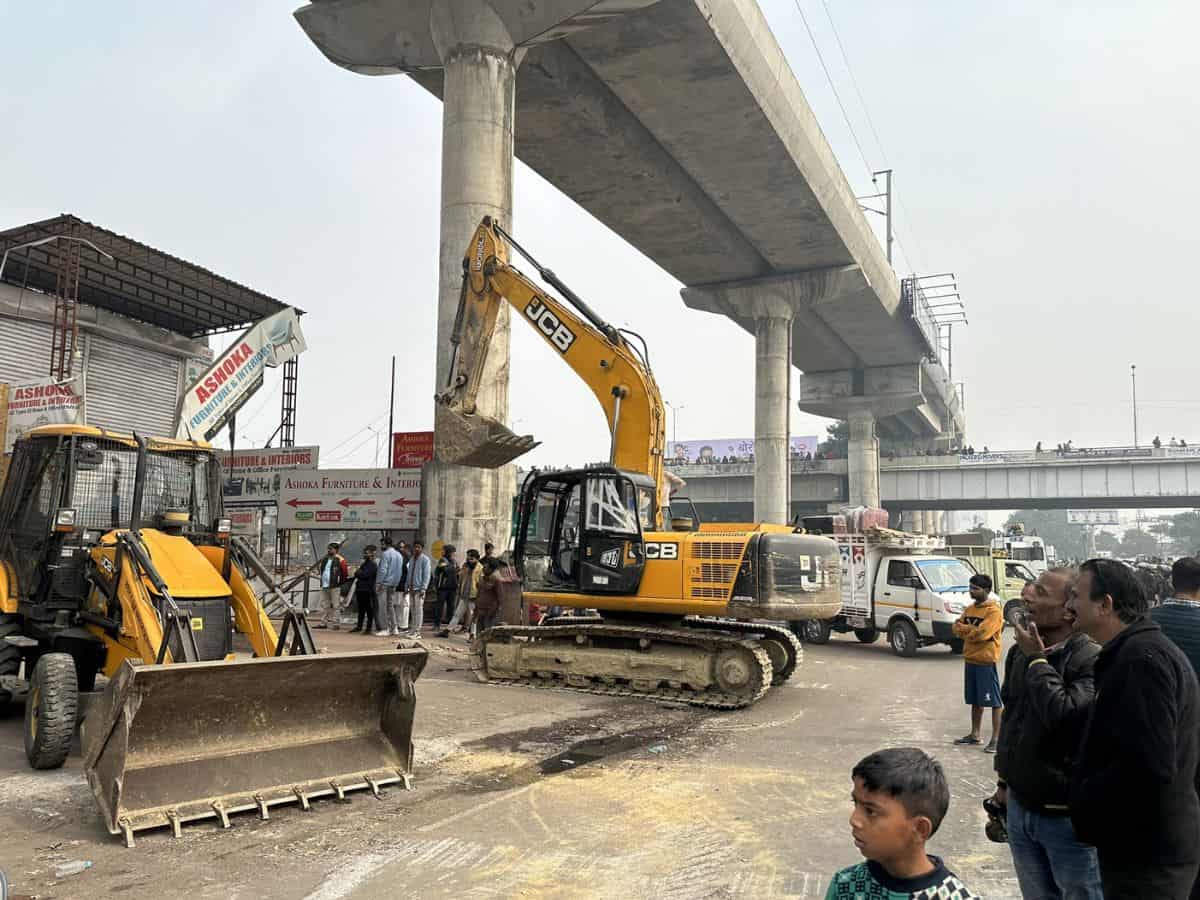
In a clear act of defiance of the judiciary, the Lucknow Development Authority recently proceeded and demolished several houses, labelled as ‘illegal encroachments’, in Akbarnagar, Uttar Pradesh, leaving its 15,000 residents in a state of despair.
The demolition was conducted in the presence of police.
The action was taken despite the Allahabad High Court, on December 21, in which the court stayed the demolition till January 22, 2024, the NewsClick reported. The order was issued during the hearing of a writ petition filed by the residents against the Lucknow civic body.
However, the following day, the Lucknow Development Authority defied the HC’s order and went ahead to demolish nearly 2500 houses, with most of them belonging to Muslim community.
This government hates poor: Residents
Unable to hold back tears, residents alleged that they were being targeted for being poor. “This government hates the poor,” said one resident.

“You cannot construct a temple after destroying the houses of poor people. No God will be happy,” said another.
As the eviction began, residents protested forcing the police to detain a few of them.
“We have been living here for the last 30-40 years. We have no place to go. We have no money. They just told us to evacuate overnight. There is no compensation or an alternative provided,” said another resident.
“We will not move. We will die here but we will not leave our home,” said another.
Residents vs administration
On October 13, the Lucknow Development Authority under Section 27(1) of the Uttar Pradesh Urban Planning and Development Act, 1973, ordered demolition of houses Akbarnagar I & II areas where most of the families are financially backward.
The order complied with the Gomti Riverfront Project sanctioned by the Yogi government in 2016 which talks about the beautification of riverbed areas around the capital city. Akbarnagar I & II is one such.
According to the National Green Tribunal norms, no construction can be carried out in a riverbed, even if one owns a property. Construction in such areas leads to rivers carrying less rainwater, thus leading to a flood-like situation.
On August 26, the Lucknow Development Authority identified settlements in Akbarnagar I&II as illegal encroachments and ordered their eviction.
Residents of Akbarnagar, who have been living for over 40 years, filed a writ petition claiming their ownership, pleading the demolition could snatch away their homes and livelihood. They submitted khasra numbers, a unique survey numbers assigned to a property in rural or semi-rural areas.
The respondents, however, maintained that Akbarnagar residents cannot claim ownership over a river bed.
What did the HC say
‘Why the urgency?’ asked Justice Pankaj Bhatia of the Lucknow Bench while ordering the stay till January 22, 2024.
“What emerges is that the various persons including the petitioners are in occupation of the land without having any title in their favour; with the passage of time, the said persons have continued in possession and in fact, government roads were carved out and other municipal services are being provided; in some cases, even the municipal taxes are being paid,” the bench observed.
“It also appears that a school is being run in the vicinity, i.e., the entire area known as Akbar Nagar I&II. This fact has not been denied by either of the parties and also emerges from the Orders impugned.”
In this regard, Justice Bhatia said, “At this stage, it is not clear as to what is the tearing hurry in which huge occupations by the relatively poor class of persons are being proposed to be demolished forthwith without even waiting for the scheme of relocating the adversely affected persons being implemented in letter and spirit and also exposing the poorest of the poor to the ensuing harsh winters.”
